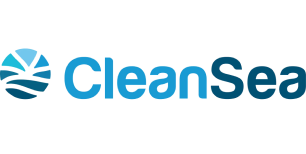The Consequences Of A Plastic Ocean
Every year 11 million tonnes of plastic enters the ocean. It can take hundreds for it to break down, which means the plastic entering the ocean today will still be harming our oceans long after the people who used it are gone. It's left as a daily threat to marine life, and we're only starting to find out what devastating affects it's having to marine animals and entire ecosystems.

Entanglement
One of the main ways plastic and especially discarded fishing gear threatens marine animals is by entanglement. Marine life easily get caught in these, and those who can't break free often die from exhaustion, starvation or drowning. Unfortunately even the ones who are lucky enough to break free often get serious wounds or even lose a limb. The animals that become entangled then attract others, who often also end up in the same situation. These discarded fishing gears are lethal traps that can drift around our oceans for many decades, and millions of marine animals die in them every year.

Mistaking plastic for food
90% of seabirds, 50% of all sea turtles, 47% of whales and hundreds of other types of marine life eat that plastic, but they can't digest it. The plastic then stays in their bodies, sometimes not leaving enough room for other real food, which causes them to starve.

Plastic becomes part of the ecosystem
Plastic has become a common part of many marine animals' diet, from the smallest plankton eating microplastics to the largest whales filtering the water for food. Once it's part of the ecosystem it affects everyone. Top predators such as sharks don't directly eat plastic, but they still ingest it through their prey, and those plastic toxins then accumulate in the shark's body. Scientists have recorded toxin levels thousands of times higher than what is natural in sharks, and this is also the case for lots of other marine life.

How does it affect us?
Guess who else is at the top of the food chain? Us. And today we eat a lot more plastic than we think. Some studies even suggest that we consume 5 grams, as much as one credit card of plastic, every week.
The damage that plastic causes in our oceans also affects us. The ocean is the source of more than 50% of the oxygen we breathe, daily food for over 3 billion people and is a crucial factor for many economies around the world. Without a healthy ocean we will lose one of the most important parts of our planet. Within three decades there could be more plastic than fish in our oceans. By then, plastic will have caused damage we can't recover from, and we'll be left regretting it forever. The time to make a change is now!

Our mission
Our mission is to create a clean ocean that both us, marine life and future generations can enjoy. Would you like to be part of our mission to clean the ocean? By purchasing a CleanSea bracelet you support our mission by removing 1 kilo of harmful trash from the ocean. Make an impact today by getting your CleanSea bracelet.


